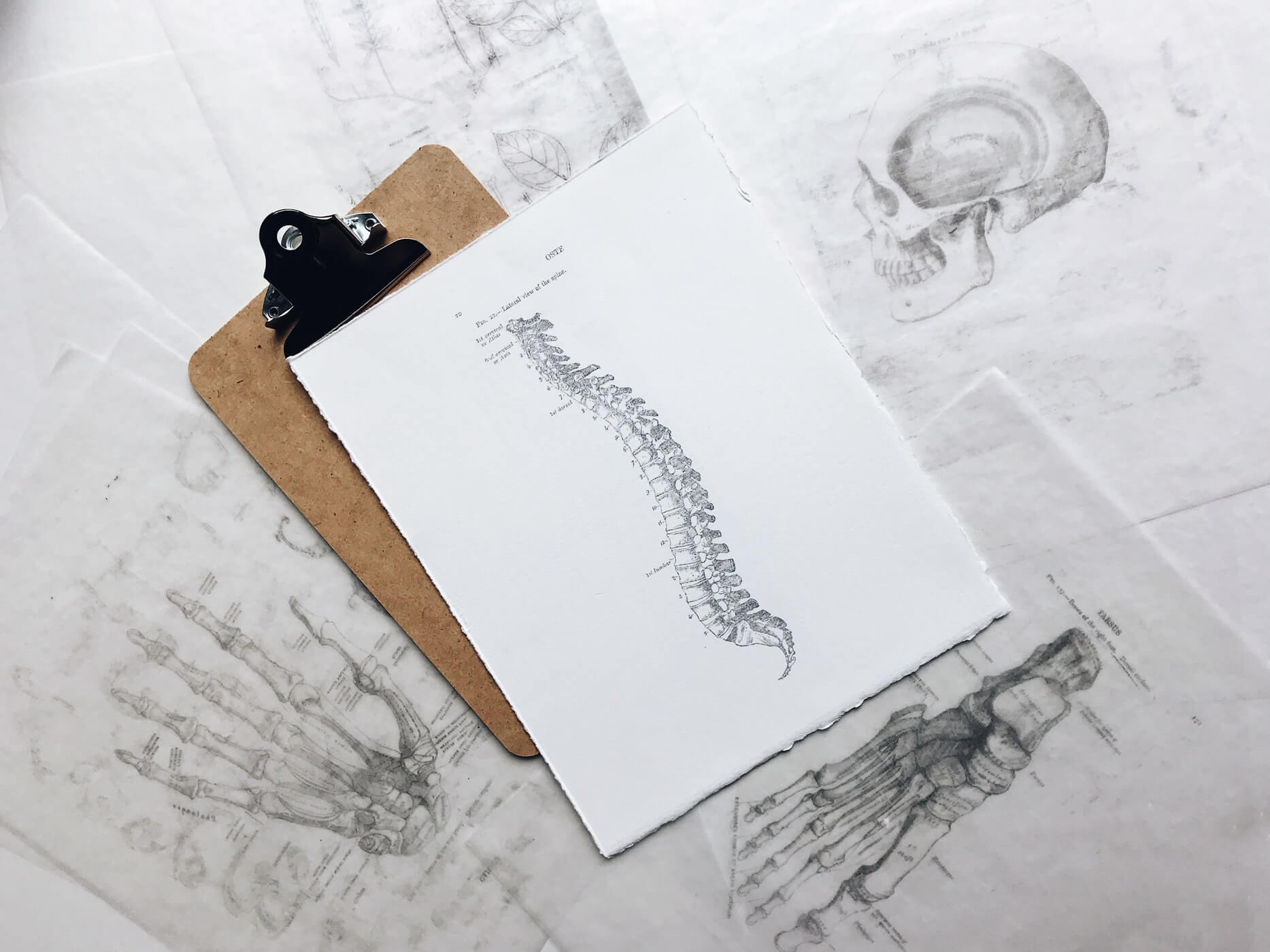So You Think You Need to See a Chiropractor? Think Functional Training First

Some chiropractic adjustments can ease pain in the short-term. But for long-term relief of chronic pain, without becoming dependent on expensive treatments, focus on addressing muscle imbalance and dysfunction.
Table of Contents
- My Personal Experience with Chiropractic Treatment
- Finding the Right Chiropractor for You
- Why You Should Focus on Functional Training for Muscles, Instead of Chiropractic Treatment
- 3 Reasons to Question Seeing a Chiropractor Forever

More matters than just your spine. Photo by Joyce McCown on Unsplash
Maybe you've been seeing a chiropractor for the last few years to help treat chronic pain. Or maybe you just started up with one and he or she is telling you that you need to get adjusted once or twice a week for the rest of your life—to be on a maintenance program of sorts.
Whenever I work with someone who is seeing a chiropractor, several common questions come up:
- What do you think of chiropractic work?
- Should I keep seeing my chiropractor?
- Do I need to see a chiropractor for the rest of my life?
In this article, I’ll cover whether chiropractic work can help treat chronic pain and what you can do to save yourself a lot of time, money, and frustration.
My Personal Experience with Chiropractic Treatment
I had chronic pain all over my body starting in my mid teens. After my family doctor tried putting me on Vicodin for back pain, my mom started taking me to some alternative medicine practitioners, including chinese medicine doctors, acupuncturists, and chiropractors.
In college, my shoulder developed a bad habit of subluxing, clicking, and feeling constantly out of place. I tried acupuncturists, Chinese tui na massage specialists, and multiple chiropractors. When things went well, I got some relief. A quick snap of the neck and mid back, and suddenly my shoulder would feel a little better.
Sometimes that relief would last for a couple of hours. But within a day or two, the problems would resurface. Those were the good times.
Sometimes there would be no change at all in my symptoms.
One time, a chiropractor said I needed to get my lower back adjusted. He popped it. That night, as I lay in bed, my leg kept going numb.
It's bad enough trying to sleep when everything hurts. It's even harder to fall asleep when your leg has already beaten you to it, and you're wondering if it'll wake back up in the morning.
All of this is to say that chiropractic treatments never did much to make me feel better in the long run.
Despite many adjustments and many assurances that "the adjustments will start to stick," aches and pains in my lower back, shoulder, wrist, back, and hips never changed much.
I started to get the sense that many chiropractors were either guessing and feigning confidence or often overconfident in what they had learned in chiropractic school.
In either case, the results were pretty clear. The spine wasn't the only, or even primary, cause of all my issues. Approaching it as if it were wasn't working as a permanent solution.
From the positive experiences, I learned that relief was, in fact, possible. That was exciting! And it encouraged me to keep searching for an answer to easing my chronic pain.
See also: The Secret History of Joint Pain
Finding the Right Chiropractor for You
I remember back in the early 2000s, when I first sought out chiropractic treatment, all the chiropractors I saw were of one type. They were really good with spinal adjustments. Sit here. Lie down here. Snap, crackle, and pop!

Original photo by Mathew Schwartz
In recent years, there has been a rise in the number of chiropractors who focus on being less forceful and a bit more holistic.
They focus on extremely gentle approaches. Some even do soft-tissue work that relaxes stiff muscle tissue and restores range of motion to joints all around the body (not just the spine). And some focus on fancy, high-tech interventions like lasers and spinal decompression.
It can be easy to get lost in the intricacies and complexities of the different services you'll find at a chiropractor's office, and to pick a chiropractic specialty that may help you.
So how do you choose a chiropractor to work with? How do you know whom you can trust?
Rather than go into the detail of each kind of chiropractic service you might encounter, let's save time by boiling it down to the most important question: Will this chiropractor make me more independent or dependent?
A good chiropractor will make you more independent by focusing on interventions and self-care techniques that give you power over your situation in the long-term.
Here are some examples of things a good chiropractor would do:
- Identify and explain what muscles are involved in your specific challenges
- Give you advice on changing habits and routines to maintain and improve your situation
- Show you exercises that seem to help
- Help you consistently progress, get stronger, and become more resilient, so that you need chiropractic work less frequently
A chiropractor who makes you more dependent will focus on interventions in which the chiropractor controls your progress and ability to feel better. Your body's maintenance becomes their responsibility. That's NOT what you want.
See also: Can you Trust an MRI for Back Pain?
Here are some examples of how a chiropractor might make you more dependent:
- Tell you that the problem is because of an innate spinal deformity that will need constant correction
- Focus on your X-rays as the only useful piece of information about your challenges
- Refuse to bother with exercises because chiropractic adjustments alone will make you stronger, more stable, or comfortable
- Insist you sign up for maintenance massages, adjustments, lasers, and other treatments for half a year or more
In short, if your chiropractor is helping you establish better control of your muscles, it's a good sign. The muscles are what stabilize bones. Muscles are what help you move. If your chiropractor is showing you how to make your body stronger and less dependent, you're in good hands.
If your chiropractor is constantly telling you (either implicitly or explicitly) that you'll always need treatment to maintain your gains, you should consider finding someone else to work with.
See also: How to Fix Bad Posture: The Hunchback Fix

I say NO WAY to your monthly maintenance plan. Photo by Daniel Páscoa on Unsplash.
Unfortunately, there are strong incentives for even well-intentioned chiropractors to make you more dependent on them. Many chiropractors are trained to believe that constant adjustments are truly in the best interests of their patients. For those that want to move away from that approach, the financial incentives can make it difficult.
It's a lot easier to run a predictable, thriving chiropractic business when your patients believe they will need you forever and come to see you on a regular basis. It's a bit harder to have predictability in your own income if you train your patients to take care of themselves without needing to see you and pay you regularly!
I don’t want to suggest that these kinds of perverse incentives are endemic only among chiropractors. If you have a massage therapist telling you that the only thing that will keep you aligned and healthy is more massage, then you’ve got yourself a similarly bad scenario.
Acupuncturists, physical therapists, trainers, and any other health professional can be subject to the same educational biases and financial incentives.
Why You Should Focus on Functional Training for Muscles, Instead of Only Chiropractic Treatment
One of the reasons I stress the importance of finding someone who can help you with muscles, rather than bones, is that muscles are much more important than bones, especially in fixing chronic pain.
Your muscles are the organs of physical integrity and movement.
Without muscles, you are a blubbery sack of blood, guts, and bones. You'd be better off attached to the ocean floor where the current would move you. Without muscles, you aren't getting anywhere here on dry land.
The point is this: You’re better off learning to retrain your muscles to stabilize your body than relying on someone to crack and pop your spine in order to relieve pain.
Muscles set bone position. Your posture? That's a function of muscles. You want to raise your arm? That's a function of muscles. Your thoracic vertebra is out of place? That’s a function of muscles.
If all you do is knock bones back into position, what will keep that bone in place? Muscles.
See also: Your Joint Pain may Actually be Muscle Pain
So a spinal adjustment to put things in position can be great (if it doesn't make your leg go numb), but you should be learning how to stabilize that position with muscle activity, or else you could develop a dependence on adjustments that don't serve your wallet or your life well in the long run.
You’ll start to think, "the only way I can feel good is to have someone else snap my back..." Once that thought is in place, you are at risk of becoming a lifelong customer.
If you have the budget to pay $100-300 a month to have someone pop your back for the rest of your life, that's fine (although I can think of plenty of better things to spend that much money on...). The bigger costs are related to your sense of self and the results you get.
If you buy into this line of thinking, you surrender responsibility for your own body. You are simply saying, "I give up on my body. Someone else deal with this."
And that will inevitably lead to a problem with results. If you never train muscles to stabilize your bones, you'll find yourself feeling less and less stable. This will create a never-ending cycle. You'll feel out-of-whack and get an adjustment. The adjustment will temporarily help, but it will also make it more likely that you'll feel unstable again and so you’ll get another adjustment… and so on.
Only YOU can build strength. Only you can build flexibility. Only you can build stability. Only you can train your body to be what you want it to be. Nobody can do that for you. Others can provide guidance and advice, but ultimately the responsibility is on you.
See also: How to Fix Chronically "Tight" Muscles

Functional training doesn’t have to be complicated. Lifting weights in a controlled environment makes daily activities easier and safer. If you can lift 40 pounds with good form, you can definitely lift a 5 pound bag of groceries without throwing out your back.
3 Reasons to Question Seeing a Chiropractor Forever
- Chiropractic schools teach chiropractors that they serve you best by focusing on the spine, when instead training muscles is key to relieving pain and regaining functional movement patterns.
- If you're a normal Jane or John, and a health professional tells you that the best you can hope for in life is a never-ending series of appointments and treatments that keep you just in a semi-comfortable holding pattern.
- If you aren’t getting stronger and more stable. (This means you’re getting more dependent on someone else “fixing” you.)
Helping you become more independent is not necessarily part of the curriculum or incentive structure of chiropractic treatment. If you think you need a chiropractor, manual therapist, massage therapist, or other health professional, always ask yourself: Is this person making me more independent or more dependent?
Instead of seeking out temporary pain relief, think about intelligently training your muscles to do the right thing. It’ll pay HUGE dividends in confidence and quality of life. And it could save you thousands of dollars.
----
Stuck in Chronic Pain? Read How Shifting Your Perspective on Chronic Pain Can Help You Heal.
Or ready to fix your own muscle imbalances? Learn how to fix dysfunctional muscles and muscle imbalances in this article: How do You fix Dysfunctional Muscles and Muscle Imbalances?

